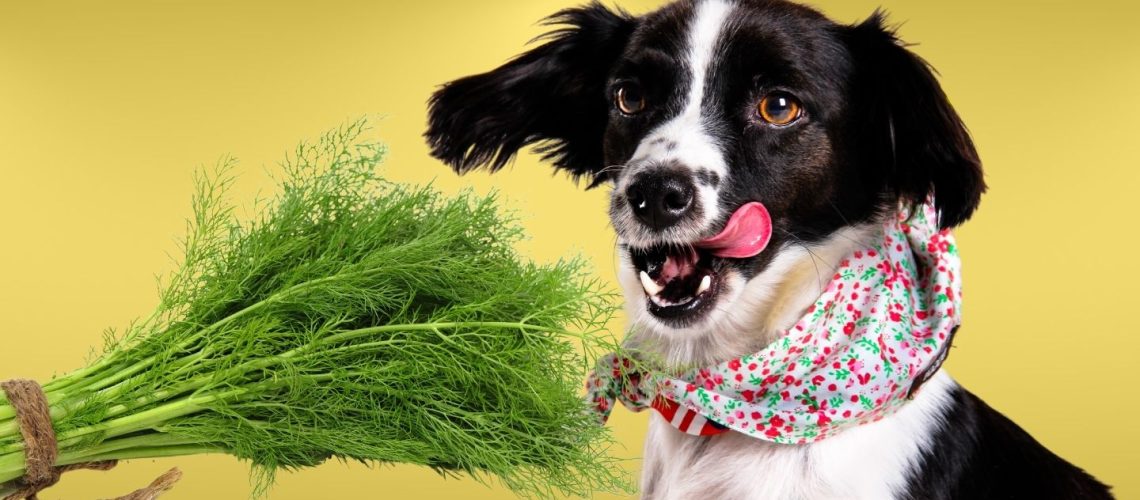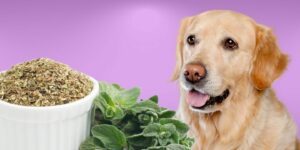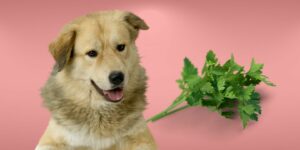Yes, dogs can eat dill in small amounts. However, it is important to feed dill to your dog in moderation, as excessive consumption of this herb can cause digestive upset.
What is Dill?
Dill is a flavorful herb commonly used in cooking to add zest and aroma to various dishes. It originates from the Mediterranean and Eastern European regions and is a member of the Apiaceae family, which also includes parsley, celery, and carrots.
Why is Dill a Topic of Interest for Dog Owners?
Dill's nutritional content and potential health benefits make it an appealing option for dog owners looking to add variety and flavor to their pet's diet while also providing valuable vitamins and minerals.
Nutritional Content of Dill
Vitamins and Minerals Present in Dill
Dill is a good source of essential vitamins and minerals, including vitamins A and C, as well as iron and manganese.
Antioxidant Properties of Dill
This herb contains potent antioxidant compounds that can help protect the body's cells from damage caused by free radicals.
Fiber Content and Its Benefits
Dill contains fiber, which can aid in digestion and promote regular bowel movements.
Health Benefits of Dill for Dogs
Improved Digestion and Gastrointestinal Health
Dill's fiber content and its natural ability to enhance digestion in dogs make it a useful addition to their diet for improving gastrointestinal health.
Antimicrobial and Antibacterial Properties
Dill has antimicrobial and antibacterial properties that can help prevent infections and support a healthy gut environment.
Reducing Anxiety and Stress in Dogs
Some studies suggest that dill may have calming effects on dogs, potentially reducing anxiety or stress levels.
Supporting a Healthy Immune System
The vitamins, minerals, and antioxidant compounds present in dill can contribute to a strong immune system in dogs, helping them fight off illness and stay healthy.
Preparing and Serving Dill to Your Dog
Fresh vs. Dried Dill: Which is Better for Your Dog?
Both fresh and dried dill can be a suitable addition to your dog's diet. Fresh dill offers the most nutritional benefits, but dried dill is also acceptable, especially if fresh dill is unavailable.
Incorporating Dill into Homemade Dog Treats
You can incorporate dill into homemade dog treats by adding a small amount of chopped fresh or dried dill to your treat recipe. Ensure that any other ingredients used are safe for dogs to consume.
Mixing Dill with Other Dog-Friendly Herbs and Vegetables
Dill can be combined with other dog-friendly herbs and vegetables like parsley, mint, or carrots to provide your dog with a tasty and nutritious meal or snack.
Precautions and Considerations When Feeding Dill to Dogs
Allergic Reactions and Individual Sensitivities
Some dogs may have an allergic reaction or sensitivity to dill. Start with a small amount and monitor their reaction to ensure they do not experience any adverse effects.
Monitoring Your Dog for Signs of Digestive Upset
Excessive consumption of dill can cause digestive upset like diarrhea and vomiting, so it's important to feed dill in moderation and watch for any signs of trouble.
Interactions with Medications or Health Conditions
Consult with your veterinarian if your dog is currently taking any medications or if they have any existing health conditions that may be impacted by consuming dill.
Alternatives to Dill for Dogs
Other Dog-Friendly Herbs and Their Benefits
Other dog-friendly herbs include basil, oregano, rosemary, and thyme, which can provide various health benefits, from relieving digestion issues to boosting the immune system.
When to Consider Trying Alternatives to Dill
If your dog doesn't react well to dill, or if you're seeking extra variety in their diet, explore other herbs and spices safe for canine consumption.
Expert Opinions and Veterinary Recommendations
What Do Veterinarians Say About Feeding Dill to Dogs?
Always consult your veterinarian before introducing new foods or supplements into your dog's diet. Many veterinarians support dill's use as a healthy addition to your dog's diet when fed in moderation.
Credible Sources and Studies on Dill for Dogs
Research on dill's benefits for dogs is limited, but existing studies and expert opinions from veterinarians suggest that dill can provide valuable nutrients and health benefits when fed responsibly.
Frequently Asked Questions
Can Puppies Eat Dill?
Puppies can also consume dill in small amounts, but introduce it slowly to ensure they do not have any adverse reactions.
Can Dill Help with My Dog's Bad Breath?
Dill's antimicrobial properties and ability to enhance digestion may indeed help with bad breath issues in dogs.
What Other Herbs and Spices Are Safe for Dogs?
Safe herbs and spices for dogs include basil, parsley, rosemary, thyme, and oregano.
Summary
Key Takeaways and Important Reminders
In conclusion, dill can be a healthy and flavorful addition to a dog's diet when fed in small amounts. Always consult with your veterinarian before introducing new foods, and closely monitor your dog's reaction to dill. With responsible feeding, dill can provide essential nutrients and support your dog's overall health.











